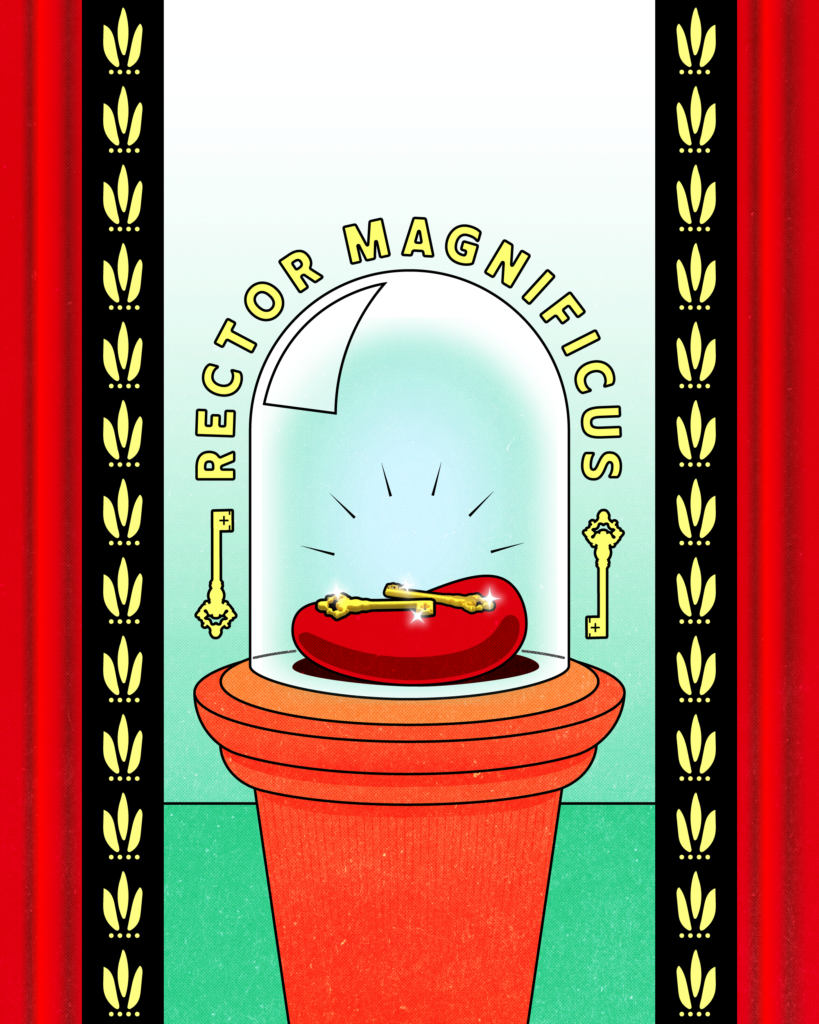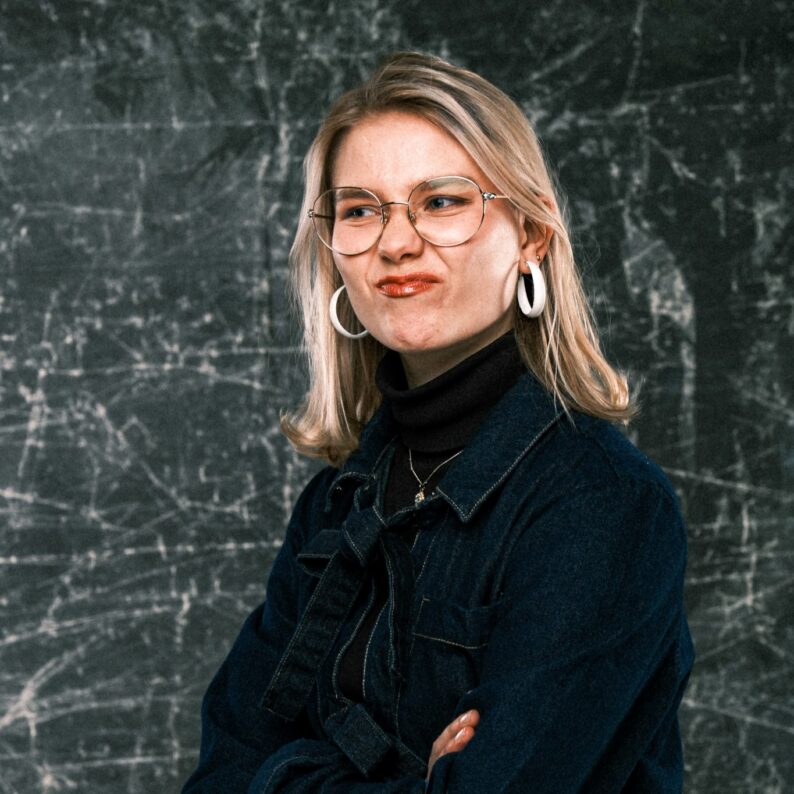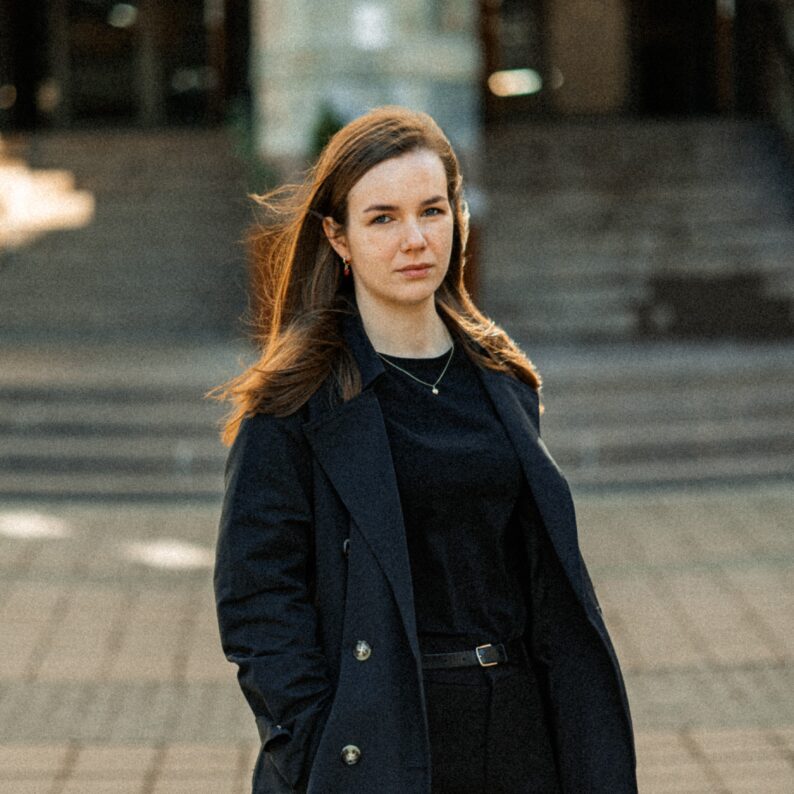


The Community asks – rector candidates answer!
BLOG
The process of selecting a new rector is halfway through, and the top four candidates have now been chosen. Together with the University of Helsinki’s local chapter of the Finnish Union of University Professors, the Helsinki University Association of Researchers and Teachers and the University of Helsinki PhD Students, we set off to find out what the top candidates think about important issues related to the rector’s position. Check out their answers below!
A new rector will be appointed for the University of Helsinki this spring. You can read about what has happened in the selection process so far right here! We now have the names of the top four candidates: Kai Nordlund, Kimmo Nuotio, Sari Lindblom and Johanna Mäkelä. The Board of the University of Helsinki will appoint someone from this group as the new rector of our University for the next five-year term this spring. Before this happens, the candidates will engage the University community in a public hearing on 9 March.
Meet the applicants:
Kai Nordlund: PhD, professor in computational materials physics. Has served as the dean of the Faculty of Science at the UH in 2018–2022 and as the vice rector in charge of teaching since 2022.
Kimmo Nuotio: LLD, professor of criminal law. Has served as the dean of the Faculty of Law at the UH in 2010–2017 and is currently the director of the Institute of Criminology and Legal Policy.
Sari Lindblom: PhD, professor of higher education. Serves as the current rector of the University of Helsinki.
Johanna Mäkelä: DSSc, professor of food culture. Serves as the dean of the Faculty of Educational Sciences at the UH.
Together with the University of Helsinki’s local chapter of the Finnish Union of University Professors, the Helsinki University Association of Researchers and Teachers and the University of Helsinki PhD Students, we made our own version of a ‘candidate matcher’, sending all four candidates a set of questions. The questions covered issues ranging from the future of degrees and the wellbeing of the community to the opportunities of the community’s international members to participate in the activities of the University community.
When it comes to the future of degrees, the applicants all agreed on the importance of degrees being interdisciplinary. They all also had experience of keeping in touch with student communities. The candidates considered communality an important factor for the development of and attachment to the academic community as well as wellbeing. All of them were also generally ready to keep education free in the future, too.
Questions:
- What will university degrees be like in the future? Will they differ from current degrees, and if so, how? Justify your answer!
NORDLUND: Degrees in the future will have the same basic idea as the current ones: they are the University’s guarantee of high-quality, comprehensive skills. However, they will include an increasing number of interdisciplinary and multilingual elements. The degrees will be complemented by small, certified study modules.
NUOTIO: Incremental development. We will monitor the skills students get from degrees and make changes if needed. Interdisciplinarity is possibly further increased, especially at the master’s level, so that students will first be well versed in a specific discipline. Bachelor’s degrees currently feel fairly fully packed – perhaps even too much so.
LINDBLOM: University degrees in the future will have a strong link between research and teaching. The degrees will have flexible opportunities to build individual study paths. Interdisciplinarity is important, as are skills related to academic thought, such as problem-solving skills and being analytical and critical.
MÄKELÄ: Finnish higher education policy and the EU’s goals have two parallel directions: an increase in the number of students completing degrees and small study modules providing continuous learning. Universities offer both generalist education and professional degrees – both are needed.
- Our University has a diverse and active student community (organisations, student nations, student union…). How will you support and develop the connection to the student community as the rector?
NORDLUND: As someone who used to be active in the student movement, I am constantly and gladly in contact with students through both official and unofficial channels. As the rector, I would maintain this close connection by, for instance, strengthening the H-talks activities we organise with the Student Union as a cooperation forum.
NUOTIO: The rector must listen to student voices through both official and unofficial channels. In many ways, students are the experts on how things are going at any given time. The communication channels are there, I know they exist. I have also practised this as a dean.
LINDBLOM: I have been in close and active contact with the student community throughout my career. It is important to maintain diverse forms of interaction between personnel, student and University management as well as to listen to students’ suggestions, needs and wishes for cooperation. Informal thematic discussion events are the best.
MÄKELÄ: My goal is natural and smooth cooperation where it is easy for all parties to contact one another and discuss matters while coming up with common goals. I think this cooperation should also have a structure that we can use to meet regularly during both daily work and festive occasions.
- How would you promote the wellbeing of students and personnel at the University of Helsinki as the rector?
NORDLUND: I would continue the additional investment in student wellbeing that was started during the coronavirus era. To improve the wellbeing of our personnel, I would, for instance, try to make the premises more comfortable, increase the personnel’s opportunities to influence matters and continue developing multilingual practices to ensure that everyone can participate in our activities.
NUOTIO: The most important thing is wellbeing in everyday life, and we must make investments in communality. Space for experiments and creativity. Transparency in personnel planning and a management style that supports human growth would increase trust and reflect on wellbeing. Students should be involved in our activities in various ways. Studying should produce genuine joy. Administrative work should also be appreciated.
LINDBLOM: As a psychologist, I consider the wellbeing of the entire community extremely important. During the coronavirus era, I have been actively involved in developing various low-threshold practices to support wellbeing. These provide a good foundation for the future too. As the rector, work on wellbeing needs to be done on a daily basis. Reinforcing communality improves the wellbeing of individuals, and we must invest in this.
MÄKELÄ: The University community must have an understanding of what the UH is doing and why as well as the way in which it carries out its activities. Without the participation of the University community, this will not happen. The different units and communities at the UH can improve wellbeing by allocating resources for it, calibrating the amount of work and agreeing on the duties included in it and appreciating everyday encounters and contacts.
- Should higher education be free in the future, too? Justify your answer!
NORDLUND: Yes. The University of Helsinki should not be a university just for the well-off elite – it should be for the entire population. Tuition fees would make people who come from more challenging socioeconomic backgrounds scared to apply to universities.
NUOTIO: Free higher education is a very strong guiding principle in Finland, something that has helped build the country. Public funding must be kept so high that we will not have to even open the debate on tuition fees. For society, funding universities is an investment in the future. Increasing educational responsibilities must also be reflected in funding.
LINDBLOM: University education without tuition fees guarantees equal opportunities to seek higher education. We have good alternatives to the fees, such as quotas for people completing a second degree at the same level and broad and diverse selection for continuous learning, which reduces the need to acquire a second degree at the same level.
MÄKELÄ: Free education has been the foundation of equality in education. The issue is politically charged if public funding decreases. Experts at universities must be allowed to make a research-based assessment of how we can combine equality in education and sufficient resources for universities.
- Various factors including funding, short-term employment contracts and ruling S2021.66, given by the Supreme Court of Finland on 10 January 2023, all affect how attractive a researcher’s career appears. How can the University of Helsinki improve its ability to attract and retain researchers?
NORDLUND: Researcher’s careers can be made more attractive by diversifying the career path system for both associate professors and other senior researchers. Short employment contracts should be avoided by systematically, especially in the case of post-dissertation employment contracts.
NUOTIO: The University should be fully committed to its personnel. Employment contracts should be as long as possible. Career opportunities should be guaranteed to everyone, and the key to this is transparent and bold personnel planning. This is what we must strive for when working in projects that use supplementary funding. Communality is a pull factor.
LINDBLOM: High-quality university education and research are the best pull factors for researcher’s careers. Our ability to retain researchers would be improved by individual support for planning research careers, experienced researchers’ support for those just starting their career, clearer career prospects and employment contracts that are as long as possible.
MÄKELÄ: By doing our basic duties well and trying to come up with the best possible ways to support rewarding career development. As the UH’s degree programmes offer research-based teaching, university careers also include teacherhood. By promoting the expansion of researcher’s careers outside the universities, too.
- In the teaching/research/salary rankings, the UH has lost ground on its competitors both absolutely and relatively. How does the rector candidate aim to reverse these trends?
NORDLUND: The flexibility of the salary system can be utilised more extensively, especially at the higher end of personal performance. This can be financed by, for instance, utilising the possibility of allocating senior personnel’s salaries for projects more often than at present.
NUOTIO: (We seem to be driving with our handbrake on.) Our amazing strategy is implemented through increasingly tightening managerialist steering. I would ease up on this steering and allow faculties, researchers and teachers to find and experience the ways in which to move towards the direction indicated by the strategy themselves. Our personnel must consider their work meaningful and understand its connection to the wider context of the University.
LINDBLOM: Our success in rankings being weaker than before is a direct consequence of the major cuts made in 2016. We need a significant increase to basic funding in order to leave more time to focus on basic duties (i.e. research and teaching). It is increasingly important to acquire supplementary funding in this situation.
MÄKELÄ: By analysing where the changes stem from. They may indirectly reflect the decrease and reallocation of public funding. The UH should also reflect on what it should try to achieve in terms of research and teaching/education in a long-term, strategy-based manner.
- What is the current teacher–student ratio, and what should it be in 2029? If the ratio increases, where does the required increase in productivity come from?
NORDLUND: In 2022, the teacher–student ratio was 0.16. In 2029, it should be around 0.2. We can achieve a better ratio through increasing research funding, which would also increase the number of teaching personnel, and through improving study guidance and smooth study progress in order to decrease study times.
NUOTIO: The situation of our different disciplines is very different in this respect, and an average figure does not provide much information. The ratio is probably around 1/15, depending on how it is calculated. The permanent core personnel in teaching and research have the greatest responsibility for educational duties. If the ratio continues to get decrease, we will also see decreasing quality in either research or teaching. Some kind of productivity leaps may still be attempted. We could, for instance, try out online courses as part of obligatory teaching. We could also seek modern solutions in course assessments, such as using peer assessment where applicable.
LINDBLOM: The teacher–student ratio varies greatly between disciplines, and it is hard to say what is the ideal average ratio. The ratio cannot be decreased without also affecting the quality of education. To me, the most important thing in increasing productivity is to cultivate smooth study progress. No compromises should be made in terms of quality.
MÄKELÄ: The UH has 48 students per professor, which is less than elsewhere. All of our teaching and research personnel provide instruction, and their share at the UH is fairly average (57%). Does an ideal ratio for a multidisciplinary university actually exist? Regardless, we must have appropriate resources and methods for teaching.
- The UH owns a lot of property, which comes with both costs and value. How does the rector candidate balance the premises (m2) versus remote work?
NORDLUND: We must make the premises pleasant and diverse to promote collaboration and random encounters as well as make coming to campuses an attractive option. If remote work makes it possible to make savings on premises, a portion of the money saved in rent should be used on measures that promote communality.
NUOTIO: We must discuss needs and solutions for premises with different faculties and communities. Remote work is suitable for some situations, but it also decreases communality. The University cannot and must not become a distance university – neither for personnel nor for students. We can agree on flexible practices separately for each unit.
LINDBLOM: The coronavirus years have changed the need for premises in teaching, research and work. When planning facility needs in the future, we must emphasise individual needs. One solution does not suit everyone – we must find the best solutions separately for each unit (research groups, disciplines, faculties).
MÄKELÄ: The starting point is to ensure that personnel and students can organise their work and studies in the best possible way. The return to the campuses is still under way, but having unused premises is not a sustainable way of using them. The way we use premises has changed. Nonetheless, the premises owned by the UH also have a symbolic meaning for the University community.
- What do the candidates think about the University’s current financial situation and its support for research? How could support for research be strengthened?
NORDLUND: The financial situation is currently stable, but uncertainties over the future loom large. We are working hard to make the 4% goal for RDI funding in Finland a reality, and to ensure that a large part of the share of funding allocated to the public side is given to universities either directly or through the Academy of Finland.
NUOTIO: Our financial situation is stable, but costs are rising fast. We have some savings here and there, but our dependency on public funding is at a high level. It would be a good idea to broaden our funding base. It must be possible to conduct research during the academic year, too. Hiring students as research assistants is a great idea. Research periods abroad must also be supported, and this is also a quality factor.
LINDBLOM: The financial situation is stable but difficult to predict. The faculties have the main responsibility for supporting research. Research leaves should be offered to everyone. At the university level, infrastructure required by research should be supported more, as should the preparation of international research projects.
MÄKELÄ: The University’s interests should be guarded vigilantly in our interaction with the government, as the UH has not always been treated well in the distribution of basic funding. Alternative funding opportunities should be considered. The realisation of the principle of ‘all teachers conduct research, and all researchers provide instruction’ should be supported.
- What do you think about the current situation of grant researchers and their status at the University of Helsinki in relation to the University’s employees? How could we guarantee that everyone is treated equally?
NORDLUND: Grant researchers should be treated as full members of the research community. This can be ensured by, for instance, offering workspace to everyone working on research full time on the same principles. Now that remote work has become significantly more widespread, we have enough shared workspace for a larger number of people.
NUOTIO: Grant researchers should be fully included in our activities and work community. We should not have two castes. Any problems must be faced, and they are always solvable. The doctoral school should be active on this matter, as should faculties for their part.
LINDBLOM: Grant researchers unfortunately have a different status than those conducting research in salaried positions. It is important to include grant researchers as members of the community and to think of ways in which we can strengthen their position. Some small steps have already been taken, such as abandoning invoicing for facility costs.
MÄKELÄ: The contracts of grant researchers ensure that they are a part of the academic community. They are on their faculties’ email lists. They have access to various systems and training for personnel. Workspace has also been allocated to grant researchers, and they have the right to vote in administrative elections.
- What measures would you take to ensure that international students and researchers have a) equal opportunities to receive information in the University’s three languages and b) equal opportunities to participate in the University community’s democracy?
NORDLUND: It is important for everyone to get information and be able to participate in the University’s operation in three languages. As a dean, I was involved in creating a system in which faculty councils can work with Finnish and English as parallel languages. Similar practices with parallel languages should be further increased.
NUOTIO: (Our operating culture is constantly developing, but there is still a lot of work to do.) Foreign students and researchers should be included in all aspects of our activities. Communication in three languages and the readiness to use English in various administrative bodies. It should be possible to agree on working languages as flexibly as possible. Language proficiency in administration has increased rapidly.
LINDBLOM: We operate smoothly in three languages. All members of the community, regardless of their language skills, should be able to participate in the operation of councils, committees and other cooperation bodies. Sometimes, we must accept that the lowest common denominator is usually English. Communication must be trilingual.
MÄKELÄ: The UH already has policies to support the participation of people who use different languages (e.g. parallel languages). Trilingualism must be instilled in everyday routines from coffee tables to large meetings, where we could use simultaneous interpretation. The study and use of national languages must be supported.
- Researchers at the University have diverse career paths, but this is not always taken into account in structures. How can we better integrate grant researchers, young researchers at the crossroads of their career paths and researchers coming to Finland from abroad into the work community?
NORDLUND: All members of the community should be treated as full members of research groups. To facilitate integration, units must create ways to get the entire community – including administration – to regularly meet and interact in more unofficial formats than mind-numbing meetings.
NUOTIO: Foreigners often come to the University for research duties and get integrated into those environments. Teaching responsibilities would be a good way of including our different groups in the duties of faculties and degree programmes. In the circles I am in, however, the number of people from these groups in faculty committees, for instance, is already larger than before.
LINDBLOM: Everyone must be able to feel like they are a member of the University community. All members of the University community must be included in collective discussions and the preparation of matters. Grassroots support in research groups and units is the most important thing, as are peer groups at the university level. Communication must reach these groups in particular.
MÄKELÄ: The UH has paid attention to these matters by, for instance, creating a career model whose different parts are currently being executed. Integration must be actively promoted by inviting everyone to participate in the activities of different units (e.g. various working groups) and by facilitating a multilingual operating culture.
- Peaceful working conditions, sufficient resources and support are the prerequisites for academic work. How will you ensure that teachers and researchers have equal opportunities in their work regardless of their faculty?
NORDLUND: The University must ensure that the operating principles of premises are the same in all units. There must be enough silent work facilities available everywhere. Similarly, administrative support resources must be equally spread between units in proportion to their size and the number of students in them.
NUOTIO: Nobody is left alone or allowed to fall behind. Belonging in the work community provides protection, and supervisory work can support this when needed. Bullying and harassment must be weeded out. I have been very happy to see stickers with ‘Harassment-free zone’ on them at the University. (This should be realised in all faculties.) The rector must have a hotline to all faculties. Internally, the University is also led through funding, and we must be able to discuss any imbalances related to it.
LINDBLOM: The fair distribution of teaching is a prerequisite for having time for research, as well. Work plans are an important tool, because ‘teaching shares’ make planned teaching duties visible and comparable. The most important thing is that equal opportunities are realised within faculties and units.
MÄKELÄ: The starting point is to have trust in the University’s units working independently and coordinating their operation in a way that works as part of the entire University. Opportunities to create a shared vision of best possible practices should be increased.



